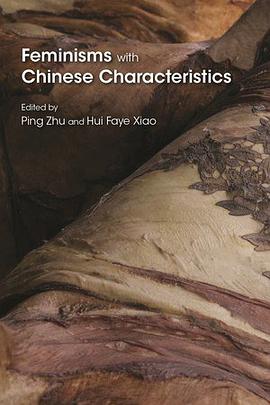Feminisms with Chinese Characteristics
豆瓣
Ping Zhu / Hui Faye Xiao
简介
The year 1995, when the Fourth World Conference on Women was held in Beijing, marks a historical milestone in the development of the Chinese feminist movement. In the decades that followed, three distinct trends emerged: first, there was a rise in feminist NGOs in mainland China and a surfacing of LGBTQ movements; second, social and economic developments nurtured new female agency, creating a vibrant, women-oriented cultural milieu in China; third, in response to ethnocentric Western feminism, some Chinese feminist scholars and activists recuperated the legacies of socialist China’s state feminism and gender policies in a new millennium. These trends have brought Chinese women unprecedented choices, resources, opportunities, pitfalls, challenges, and even crises.
In this timely volume, Zhu and Xiao offer an examination of the ways in which Chinese feminist ideas have developed since the mid-1990s. By juxtaposing the plural “feminisms” with “Chinese characteristics,” they both underline the importance of integrating Chinese culture, history, and tradition in the discussions of Chinese feminisms, and, stress the difference between the plethora of contemporary Chinese feminisms and the singular state feminism.
The twelve chapters in this interdisciplinary collection address the theme of feminisms with Chinese characteristics from different perspectives rendered from lived experiences, historical reflections, theoretical ruminations, and cultural and sociopolitical critiques, painting a panoramic picture of Chinese feminisms in the age of globalization.
contents
Feminisms with Chinese Characteristics: An Introduction/ Ping Zhu and Hui Faye Xiao 1
Part One. Chinese Feminisms in the Age of Globalization
1. “Gender” Trouble: Feminism in China under the Impact of Western Theory and the Spatialization of Identity/ Nicola Spakowski 37
2. Equality and Gender Equality with Chinese Characteristics/ Li Xiaojiang 65
3. The Class Characteristics of China’s Women’s Liberation and Twenty-First-Century Feminism/ Xueping Zhong 76
4. The Specter of Polygamy in Contemporary Chinese Gender Imaginations: An Interview with Dai Jinhua/ Wu Haiyun 103
Part Two. Chinese Feminisms on the Ground
5. Feminist Struggles in a Changing China/ Wang Zheng 117
6. Why Don’t Mainland Chinese Liberals Support Feminism?/ Li Jun (aka Li Sipan) 157
7. The Formation of Chinese Feminist Linguistic Tactics and Discourse: Adapting The Vagina Monologues for Chinese Women/ Ke Qianting 180
Part Three. Chinese Feminisms in Women’s Literature, Art, and Film
8. “Am I a Feminist?” An Interview with Wang Anyi/ Liu Jindong 205
9. Wang Anyi’s New Shanghai: Gender and Labor in Fu Ping/ Ping Zhu 216
10. “I Am Fan Yusu”: Baomu Writing and Grassroots Feminism against the Postsocialist Patriarchy/ Hui Faye Xiao 243
11. Over 1.5 Tons: Subversive Destruction and Counter-Monumentality to the Phallic Archetype/ Shuqin Cui 271
12. Screen Feminisms with Hong Kong Characteristics/ Gina Marchetti 299